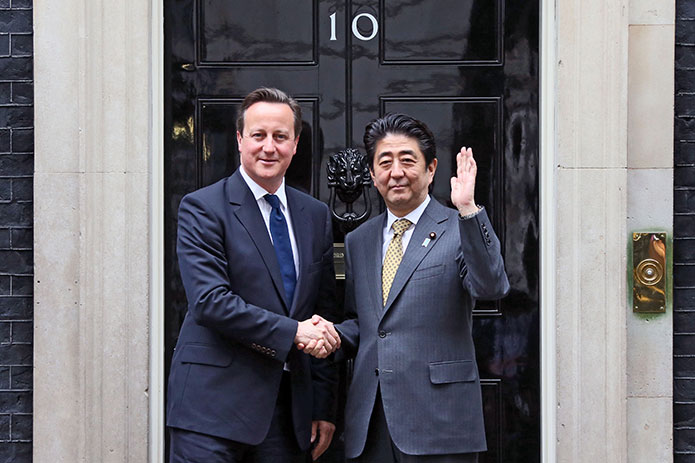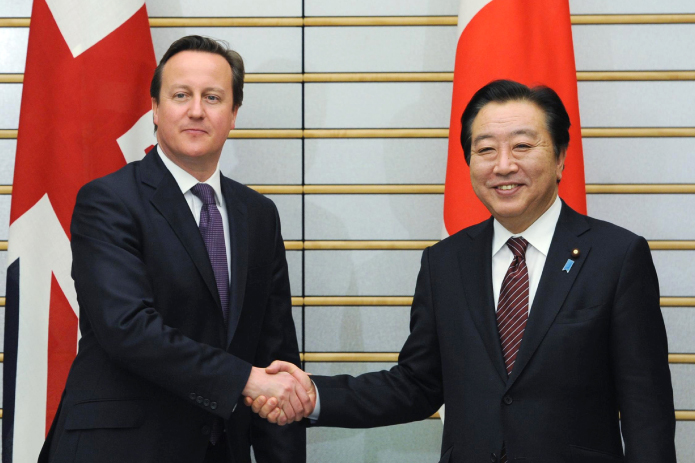Scots independence debate gathers pace
- Only those resident in the country will be eligible to vote
- Referendum may divide friends and family, warn pundits
- A definitive Yes or No vote is most desirable option
There are more giant pandas in Scotland than there are Conservative Members of Parliament. That single snippet of apparently useless information actually speaks volumes about the nature of Scottish politics, something to which, until recently, few people south of the border have given thought.
The English in particular take the union for granted, and since it has worked so well for 300 or so years, that is largely understandable.
The two countries were separate states for several centuries before eventual union. England’s attempts at a military takeover of her northern neighbour were notoriously unsuccessful. History resonates with the names of the heroes of the wars of independence: Robert the Bruce and Sir William Wallace.
Bannockburn, too, stands out as the 1314 battle—which took place near Stirling in central Scotland—in which the Scots truly trounced the English. The beginnings of a union go back to Mary Queen of Scots and her pledge, in the 1560s, to bring the kingdoms together.
That actual coming together of the states did not happen, however, until May 1707 with the Acts of Union.
Matters remained relatively straightforward until a referendum in 1997 resulted in the creation of a Scottish Parliament, sitting in Edinburgh. This so-called devolved legislature has the power to act on all and any matters that are not reserved for the government in Westminster.
If the outcome in the new referendum were a Yes to independence, it would leave Westminster with no powers whatsoever over Scotland.
It is no coincidence that the Scottish Nationalist Party (SNP) has chosen the anniversary of Bannockburn (18 September) to hold the independence referendum that could tear apart this centuries-old union.
Cynics might say that a stirring of the Braveheart blood, especially in a year when Scotland hosts the Glasgow 2014 Commonwealth Games, will encourage people—especially the young and independently minded—to vote Yes.
Yet, this could well be completely misguided. The former first minister of Scotland, Lord Jack McConnell, told BCCJ ACUMEN, “I meet loads and loads of 16- and 17-year-olds who are studying the debate and they are smarter than everyone gives them credit for.
“I’ve met very few people of this age who say to me they don’t have enough information. By contrast, I meet many people of my age who don’t really seem to have read much at all”.
But the Yes campaigners are clear about their aims. Alyn Smith is Member of the European Parliament for Scotland: “Too many of our resources are not being put to the betterment of the Scottish people. Our tax and benefits system mitigates against productivity and as a disincentive to innovation within Scotland”, Smith said.
Smith is quick to point out that Scotland is a world leader in the field of science, with abundant energy reserves, a talented population and a strong economy. “But too many of our people are struggling”, he said. Smith fears that “the direction Westminster will take us in is entirely against our wishes and our interests”.
So, if it is a question of voting for what matters, there is another issue that rankles. The rules state that everyone resident in Scotland at the time of the referendum can vote.
This means an estimated 650,000 people born outside Scotland will be eligible. Of these potential voters, the SNP has deliberately targeted the ethnic minorities, especially the over 100,000-strong Asian community.
On the other hand, no one living outside Scotland will be able to vote. This means a huge number of people—well over a million—in the Scottish diaspora is disenfranchised, begging the question posed by some: just what does it mean to be Scottish?
The European Union (EU) has recently announced that it will not admit new member states for at least five years. So what would that mean to a newly independent Scotland? Smith is adamant this issue would not apply, citing the example of what happened after the reunification of Germany.
“We are part of the EU territory now, and embedded in every EU programme from Erasmus to Horizon 2020. It is simply in nobody’s interests to see us leave only to come back in again.
“The Scottish government has calculated that talks to establish full independence will take around 18 months, and until that point we remain part of the UK, so part of the EU (assuming of course the UK remains in the EU)”.
If the ayes have their way, that short 18-month period will see much accomplished. There will need to be, for example, Scottish embassies. Lord McConnell sees this as being a matter of starting out with regional hubs. But there are immediate concerns over such issues as trade promotion. What, for example, of the British chamber?
Scottish President Emeritus of the BCCJ Phil Gibb OBE sums it up very well: “The possibility of a [Scottish Chamber of Commerce in Japan] would need to be considered, though in all likelihood I could see this being an extension of Scottish Development International (SDI).
“I’m really not sure whether the Japanese government would necessarily extend the ‘special status’ enjoyed by the BCCJ”.
Perhaps not surprisingly, official bodies such as the British Embassy Tokyo and SDI themselves have declined to comment on the prospects, and possible outcome of the referendum. Even privately, many are loathe to discuss the issue in any depth. Without doubt it stirs emotions.
It is hard, when looking at both sides of the debate, not to conclude that, to a degree, the Yes campaign has been fought on emotional grounds, while the No campaign has argued much more based on the facts.
In some cases, as Lord McConnell pointed out in his recent address to the BCCJ, the issue has sharply divided families, and in the event of a success for those in favour, it could do so even more.
To be personal for a moment, I prize my Scottish parentage and will proudly don the tartan—McLaughlan—of my mother’s clan when occasion permits, but I would rue the day when I would need to show my passport to visit my brother and his family in Glasgow, after spending time with my sister and her family in Essex.
One thing is a certainty, namely, that everyone concerned is looking for a definitive result: either a strong Yes or No vote.
Anything else will render the exercise futile and result in calls for yet another referendum in the space of just a few years. Few people will have the appetite for that.






